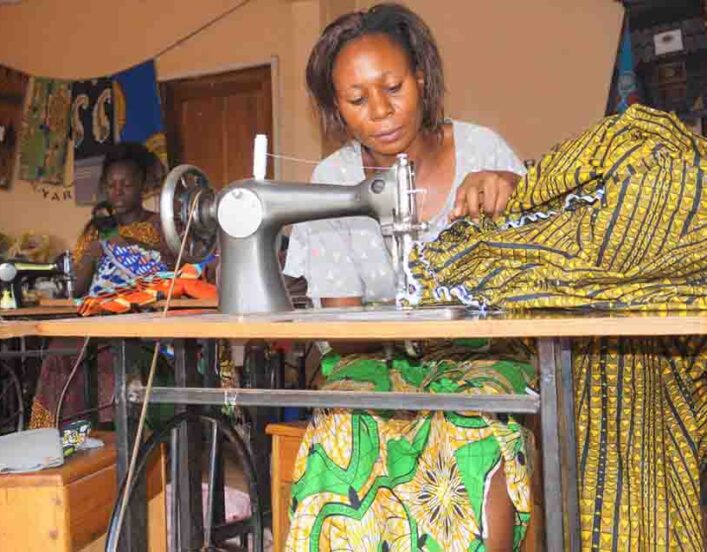Vocational Training
The Digital Literacy Program equips women and girls with essential digital skills, enabling access to online resources and participation in the digital economy.
Why this is important
Vocational training is a crucial avenue for empowering girls, equipping them with practical skills for employment, entrepreneurship, and further education. Through strategic partnerships and certified programs, we ensure that girls receive the highest quality training, paving the way for their economic independence and community impact.
Why Vocational Training Matters
- Economic Empowerment: Vocational training directly enhances employability and income potential. The World Bank notes that vocational training can boost employment prospects by 20% and increase earnings by 15-20%. In Uganda, where traditional education paths often fall short, vocational training offers a viable route to economic stability.
- Reducing Gender Inequality: With only 16% of women participating in Uganda’s formal labor market compared to 77% of men, vocational training helps bridge this gap. By providing girls with in-demand skills, we promote gender equality in the workforce and support their entrepreneurial aspirations.
- Enhanced Life Skills: Vocational programs often include training in financial management, communication, and problem-solving—essential skills that contribute to personal and professional success. This holistic approach ensures girls are well-prepared for diverse challenges.
- Addressing Local Skills Gaps: Tailoring vocational training programs to meet local market needs boosts local economies and creates job opportunities. By aligning training with community demands, we ensure that girls acquire relevant skills that benefit both themselves and their communities.
Our Approach
We collaborate with partners nationwide to deliver vocational training tailored to the needs of girls. These programs are provided through entities verified by the Directorate of Industrial Training (DIT), ensuring that the training meets rigorous quality standards. Certified by DIT, these programs guarantee that girls receive relevant and recognized qualifications.
Impact on Girls
- Increased Employment Opportunities: Our training programs significantly enhance employability, with graduates equipped for jobs in various sectors including technology, healthcare, and agriculture.
- Economic Independence: Vocational training fosters financial autonomy, helping girls secure stable employment or start their own businesses, thereby improving their quality of life and reducing poverty.
- Social Benefits: Beyond job skills, training programs build confidence and resilience. Graduates become role models, inspiring others in their communities to pursue similar educational and career paths.
Recommendations for Effective Training
- Tailored Programs: Develop training programs aligned with local job market needs and the interests of girls, ensuring that skills taught are relevant and in demand.
- Industry Partnerships: Collaborate with local businesses and industries to provide practical training experiences and job placement opportunities, enhancing program relevance and employment prospects.
- Support Services: Offer additional support such as career counseling, mentorship, and financial literacy education to assist girls in transitioning from training to employment or entrepreneurship.
- Community Involvement: Engage community leaders and stakeholders in planning and implementing vocational programs to ensure they address local needs and garner community support.
Conclusion
Vocational training is instrumental in empowering girls, offering them practical skills that enhance their employability and economic independence. By partnering with certified entities and aligning programs with local needs, we contribute to sustainable development and gender equality in Uganda. For more information on vocational training and DIT certification, visit Directorate of Industrial Training.
Further Reading:
Gender gap in ICT and Online gender based violence in Uganda
The Role of Information and Communication Technologies (ICTs) in Poverty Reduction is widely recognized.
Read more
Resources

Policy Recommendations: Digital Literacy for women
Digital literacy is a vital skill in today’s globalized world, offering women and girls opportunities for personal growth, economic empowerment, and social well-being.
Take Action
There are lots of ways to get involved with efiug’s work to advance equity. Together, we can make a difference in the lives of women and girls.



